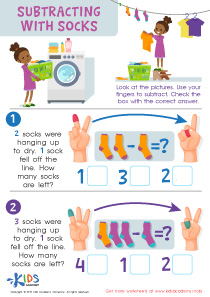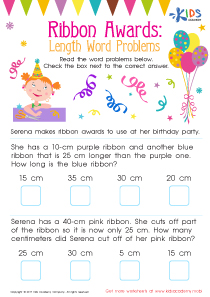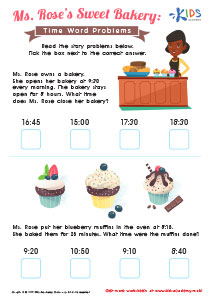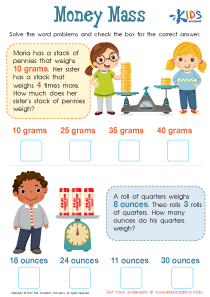Counting skills Preschool Addition and Subtraction Word Problems Worksheets
11 filtered results
-
From - To
Enhance your preschooler's counting skills with our engaging Addition and Subtraction Word Problems Worksheets. Designed for young learners, these worksheets provide fun and interactive word problems that help children develop critical math skills. Each worksheet encourages early learners to practice addition and subtraction through real-life scenarios, making math relatable and enjoyable. Perfect for classroom activities or home learning, our resources support foundational mathematics and promote problem-solving abilities. Foster confidence in counting and arithmetic as kids work through creative challenges that spark curiosity and excitement about numbers. Explore our collection and watch your child thrive in their mathematical journey!
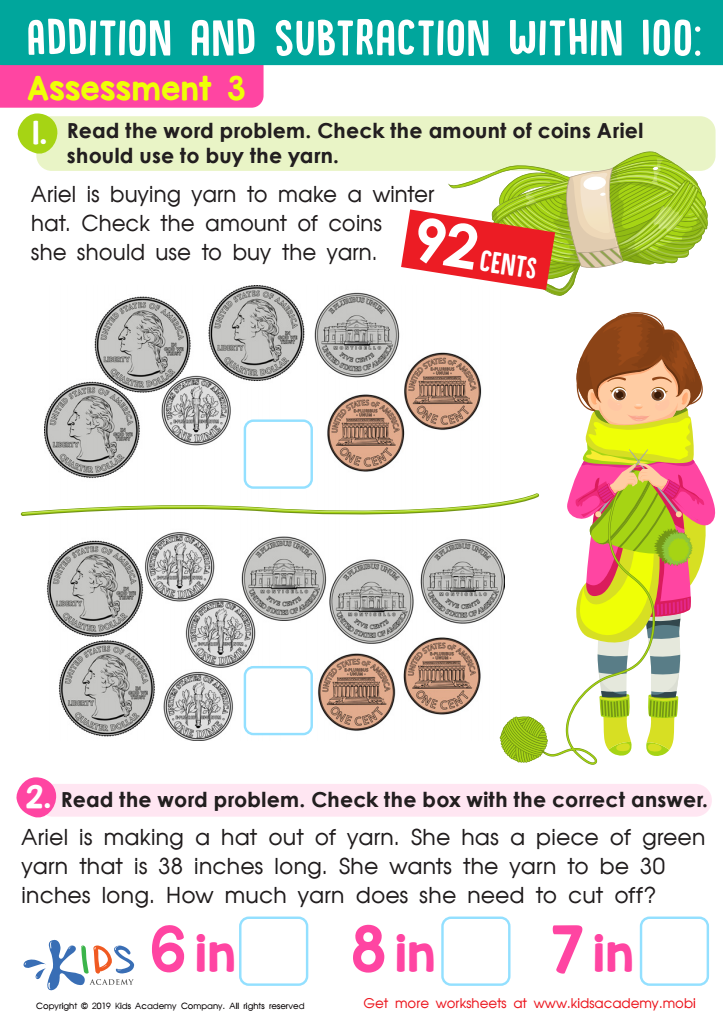

Assessment 3 Math Worksheet
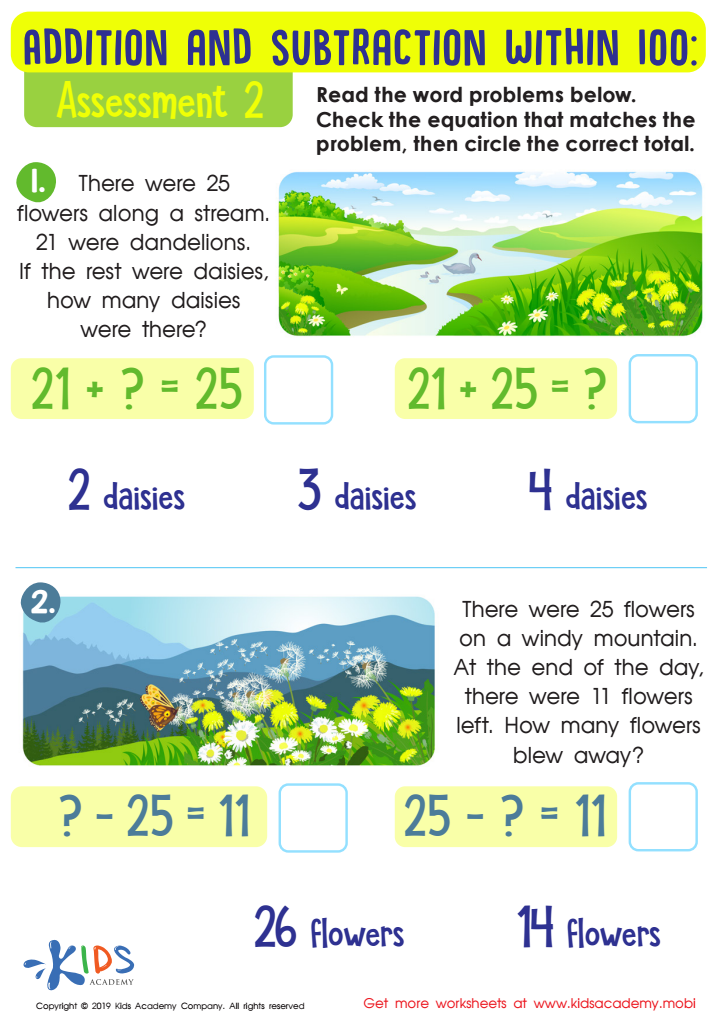

Assessment 2 Math Worksheet
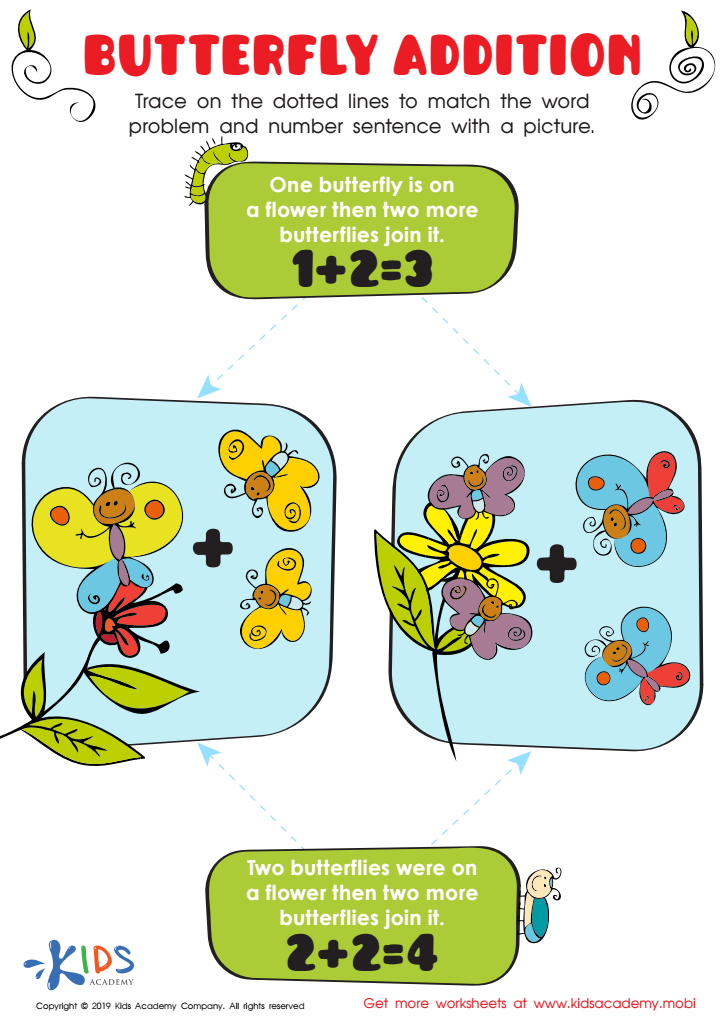

Butterfly Addition Worksheet
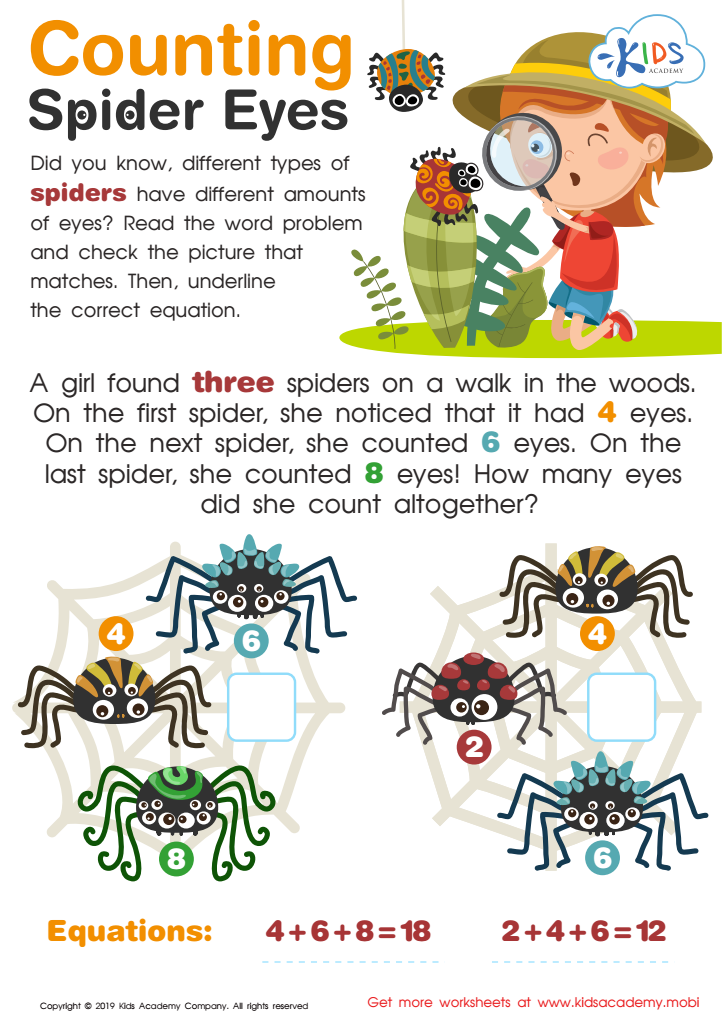

Counting Spider Eyes Worksheet


Counting Seedlings Worksheet


Adding Flower Petals Worksheet
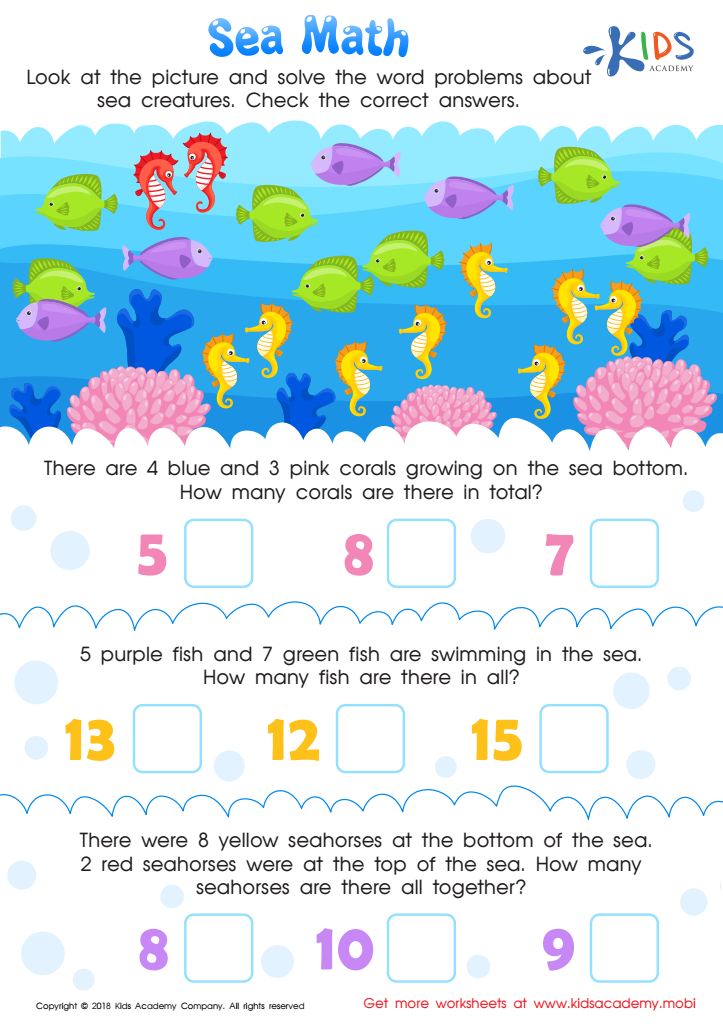

Sea Math Worksheet
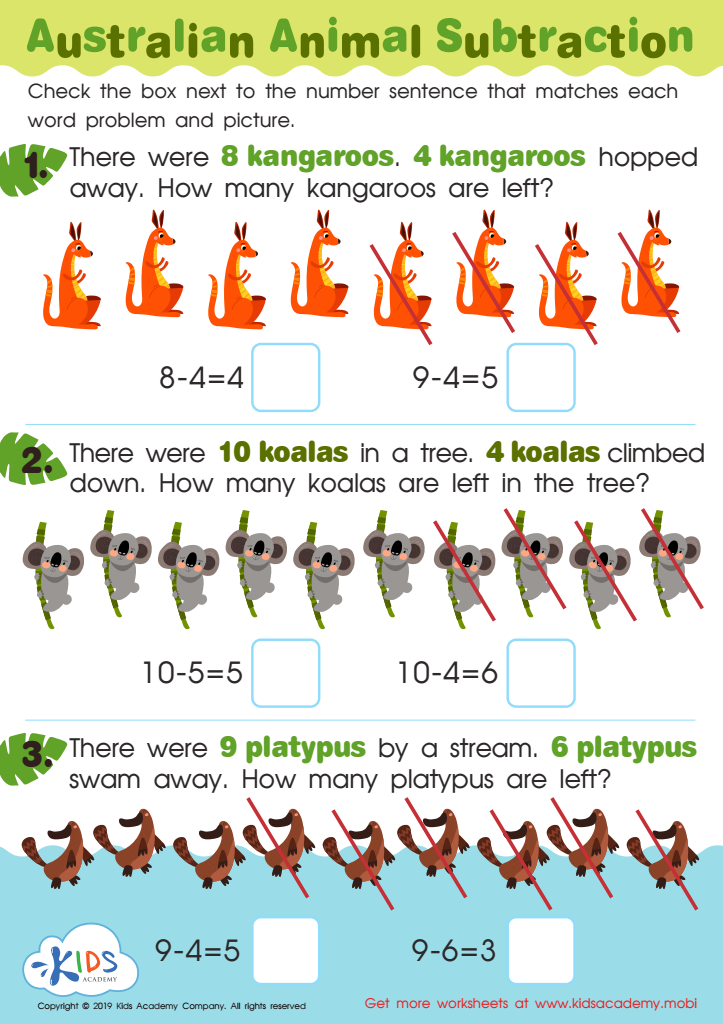

Australian Animal Subtraction Worksheet
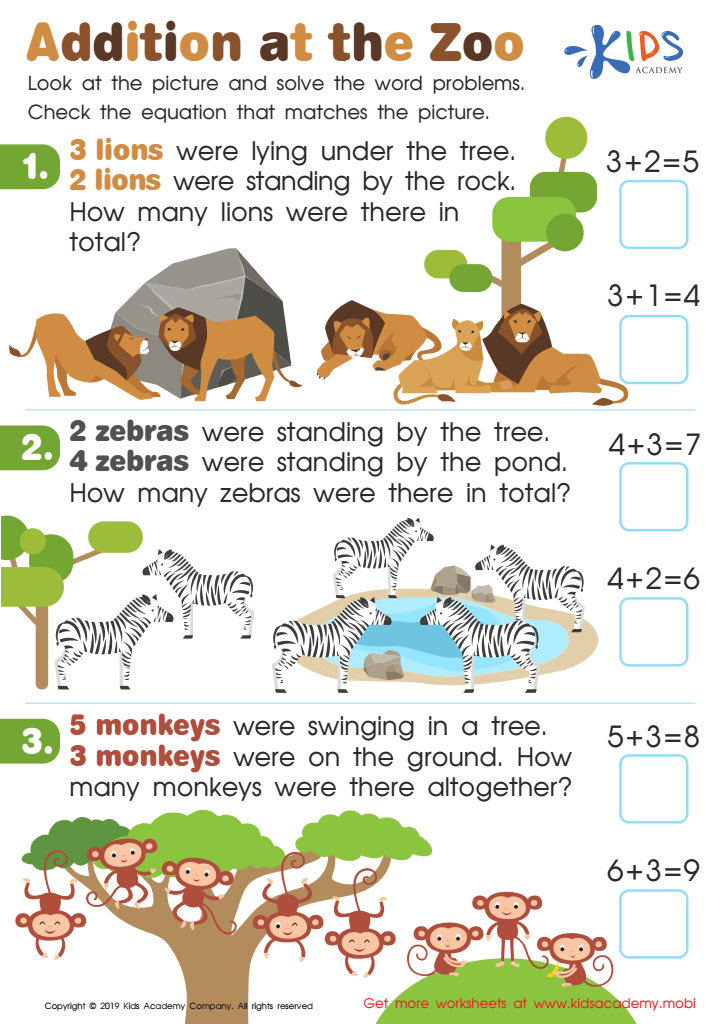

Addition at the Zoo Worksheet
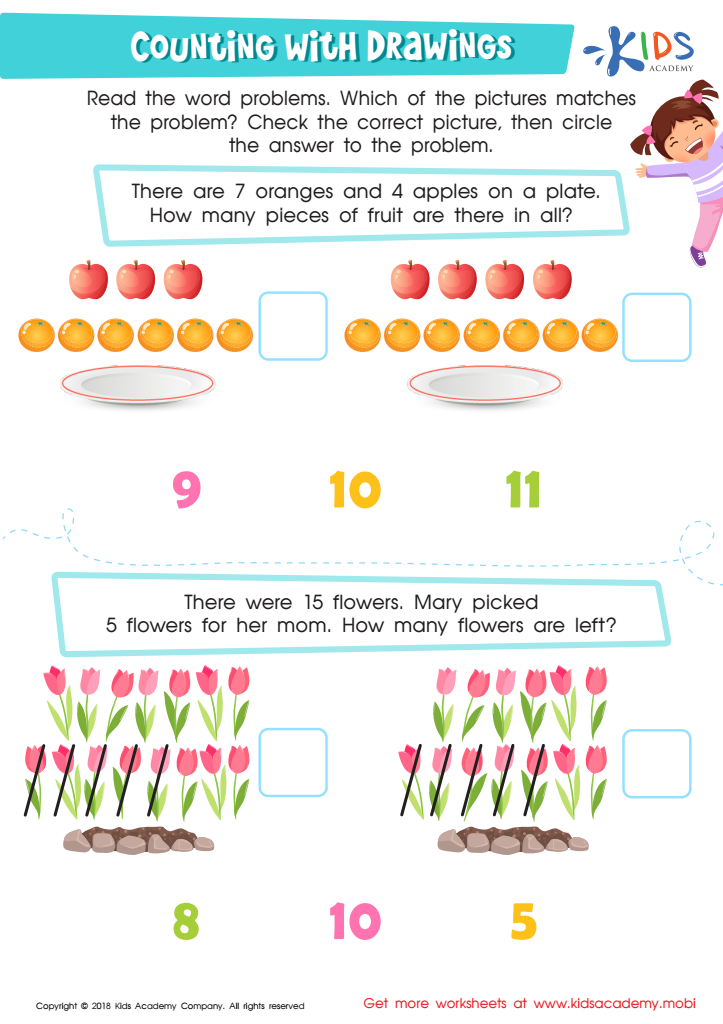

Counting with Drawings:Fruits & Flowers Worksheet
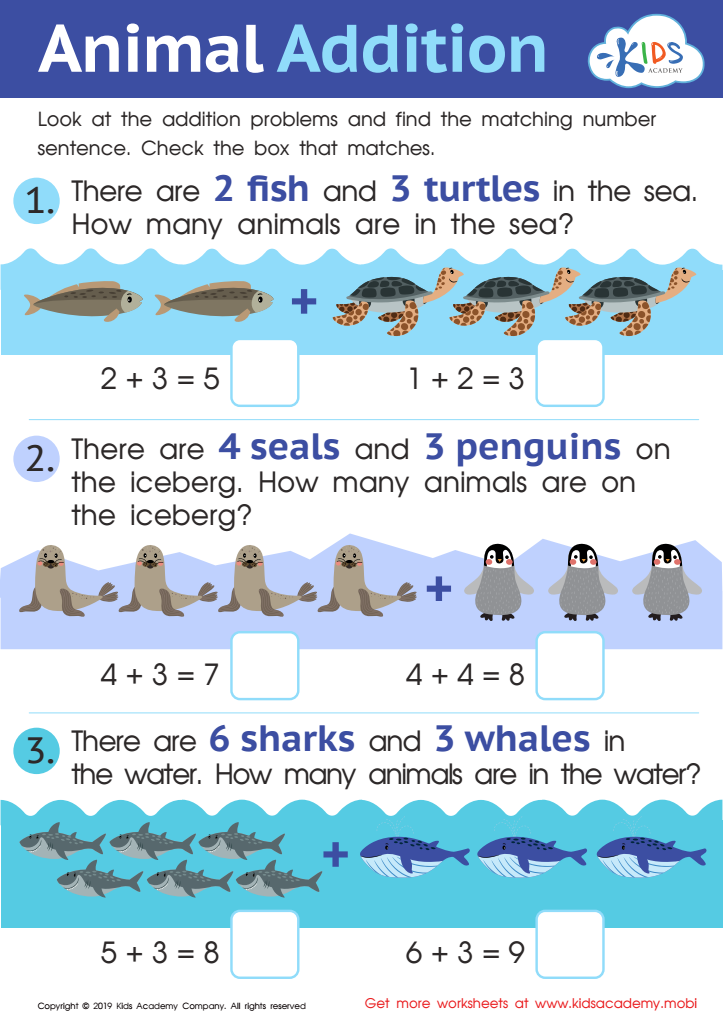

Animal Addition Worksheet
Counting skills, along with the ability to solve addition and subtraction word problems, are foundational elements of mathematical understanding in young children. For parents and teachers, nurturing these skills in preschoolers is crucial for several reasons.
Firstly, counting serves as the building block for future math concepts. Mastering counting not only aids in simple arithmetic but also enhances a child's number sense, allowing them to recognize patterns, compare quantities, and understand the relationships between numbers.
Secondly, addition and subtraction word problems develop critical thinking and comprehension skills. They require children to analyze a situation, extract relevant information, and apply their numerical knowledge to find solutions. This promotes cognitive development as it encourages children to think flexibly and creatively about how to approach problems.
Moreover, engaging preschoolers in counting and simple math within storytelling enriches their learning experience. It connects math to real-life scenarios, making it more relatable and enjoyable, fostering a positive attitude toward mathematics from an early age.
Ultimately, strong counting and problem-solving skills establish a firm foundation for academic success, building confidence in young learners and preparing them for more complex mathematical concepts in the future.
 Assign to My Students
Assign to My Students










